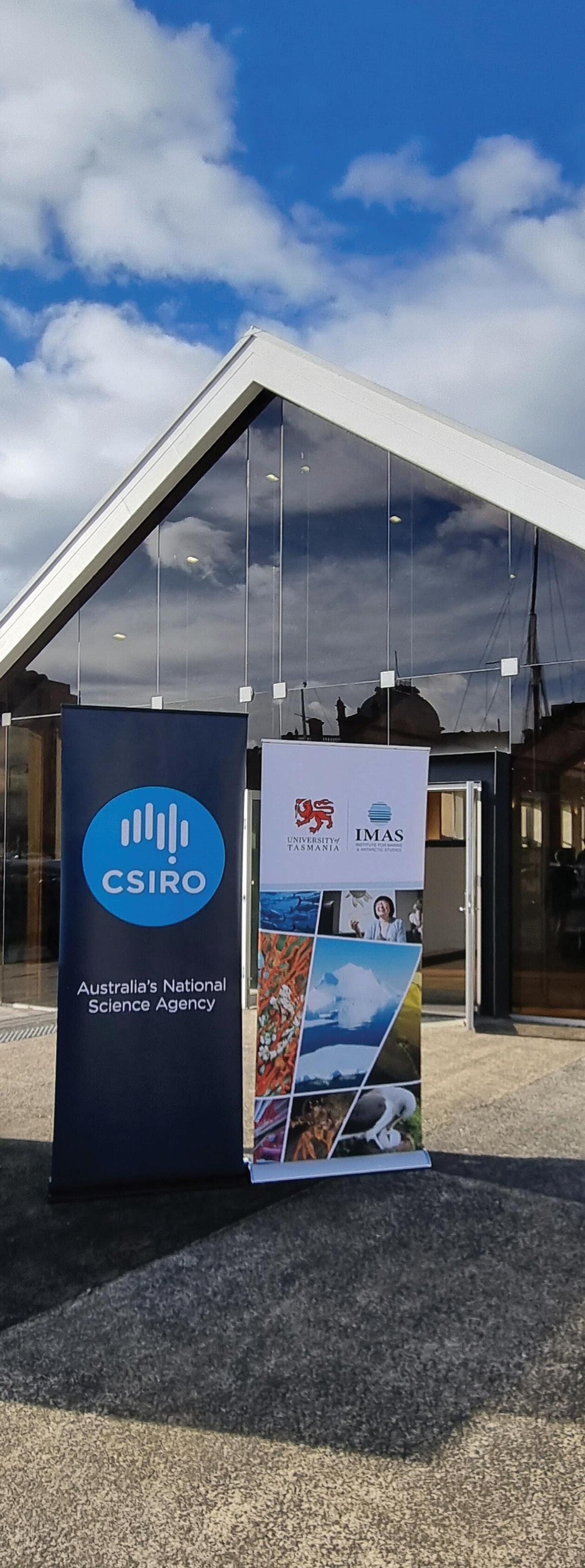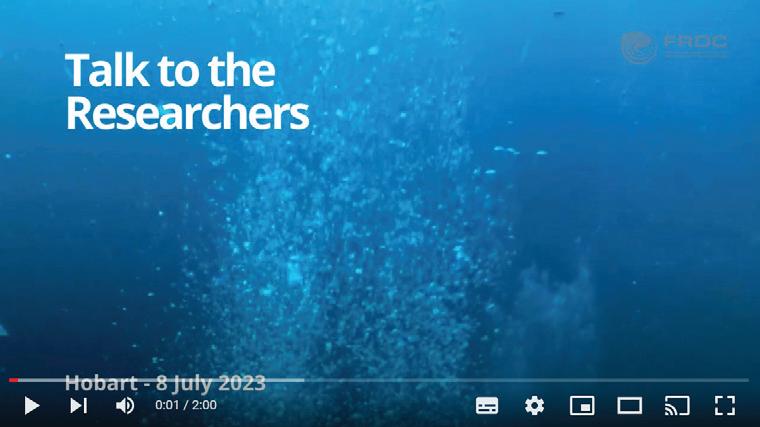
1 minute read
Showcasing Our Science
Scientists present extensive research on Storm Bay salmon farming.
Storm Bay, a vibrant marine ecosystem that is often battered by challenging conditions, has become the focal point of a contentious debate surrounding the expansion of salmon farming. However, scientists assert that any decisions regarding the expansion will be based on comprehensive research conducted over several years.
Located south of Hobart and east of Bruny Island, Storm Bay is characterised by its teeming marine life and frequently treacherous environment.
Experts from the CSIRO (Commonwealth Scientific and Industrial Research Organisation) and the Institute for Marine and Antarctic Studies (IMAS) emphasise that scientific findings will play a central role in determining the way forward.
Scott Condie, a senior research scientist at CSIRO, has dedicated the past few years to studying Storm Bay and developing weather prediction models for the marine ecosystem. Speaking at a science open day in Hobart, Condie explained, “We can employ these models to address questions such as the potential impact of increasing aquaculture pens in the area”. He further noted that Storm Bay was currently in excellent condition, owing to its vast size, openness, and energetic nature.
Condie acknowledged that additional salmon farming would introduce more nutrients into the water, but the key concern was assessing the bay’s capacity to withstand this additional pressure. He stated, “This is precisely why we are conducting the study— to determine the exact trade-offs involved. Our objective is to ensure that we can sustainably produce food while preserving the integrity of ecosystems like Storm Bay.”
Jeff Ross, an associate professor at IMAS, explained that scientists were actively engaged in studying Storm Bay by conducting dives, collecting water samples, examining plankton, and deploying submersible robots to explore its depths. The diversity of life found in the water and sediment serves as a crucial indicator of the bay’s overall health.
Ross emphasised the importance of not rushing the scientific process before proceeding with salmon farm expansion. He also expressed the scientists’ commitment to presenting objective information to the public, without attempting to sway opinion in favor of or against the industry. “Our primary aim is to provide access to the science, the very science utilised by decision-makers. This way, individuals can make their own informed opinions,” Ross affirmed.
The scientific community remains steadfast in ensuring that any decisions are guided by rigorous research and consideration of the bay’s delicate ecosystem.















